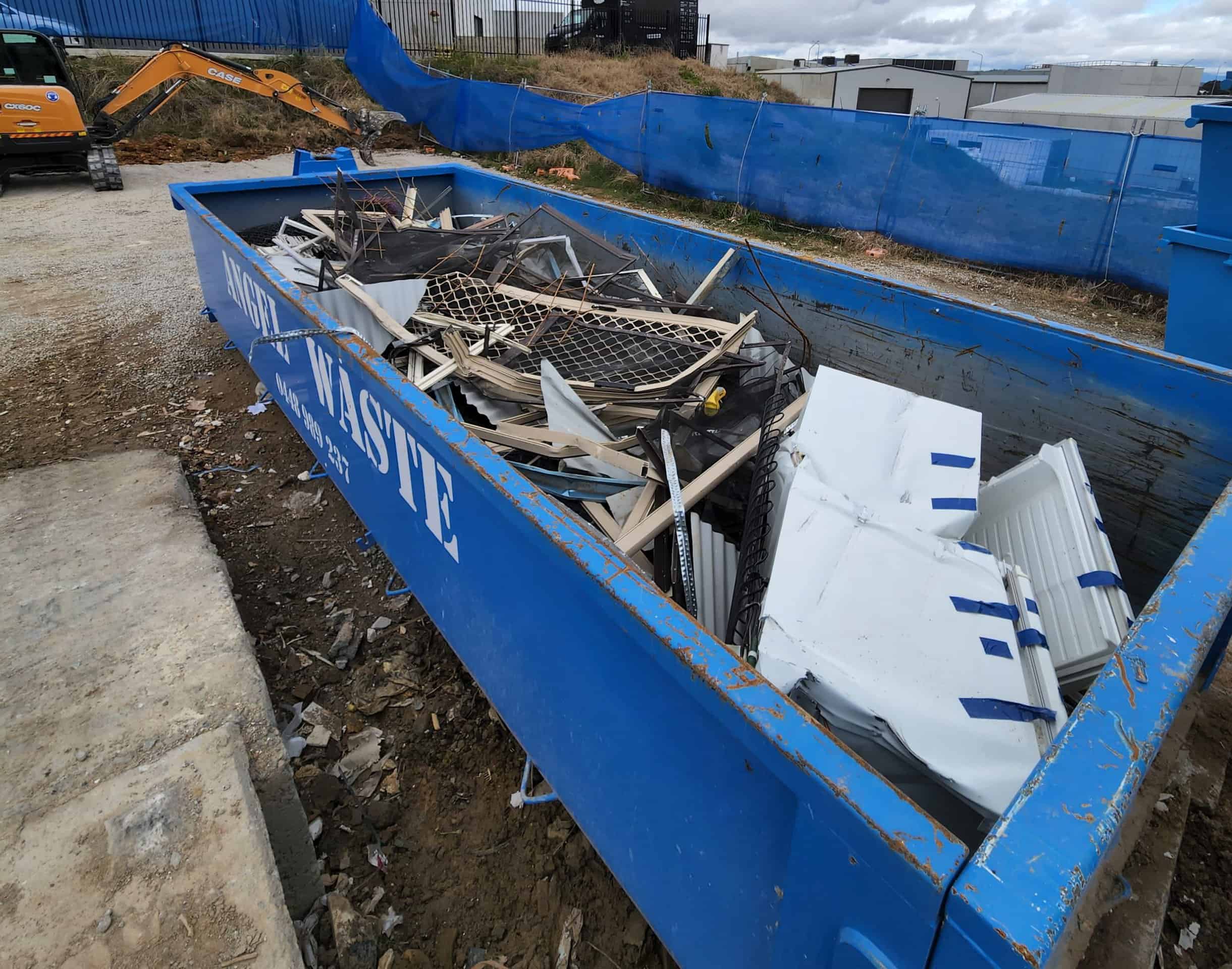If you’re looking to hire a skip for your project, home renovation or just to declutter, it’s worth considering what can and can’t go into your skip bin and how to load your skip bin. There are many factors as to why you should consider the contents of your clean up. Skip bins can be a great asset in handling the removal of waste but only if it’s done properly. If you’re planning on placing items in your skip that don’t belong there, there could be financial implications for you, depending on whether the skip bin hire company charges you extra for disposing of your particular waste or for delivering that waste back to you instead. There are also environmental implications for the ecosystem if you attempt to dispose of items incorrectly into our waste management system. Here are some tips on what can go into a skip bin and what can’t.
Items that CAN go in a skip bin
Hiring a skip bin is a great way to efficiently remove your household rubbish in large quantities, safely.
General waste skips
When you hire a general waste skip, you can be assured that non toxic, household waste and green waste can be placed into a general waste skip bin. This includes food waste, broken kitchenware, soft plastics, sanitary items, polystyrene, animal waste, cardboard and other recyclable items. These items can be placed in either a skip bin or your household bin, however, if you have more items such as garden waste, timber furniture or renovation waste, these items can also be put in a skip bin as they come under the general waste classification for skip bins within the Australian Capital Territory.
Green waste skips
If you choose to hire a green waste skip, this strictly means green waste only. The organic waste you can dispose of within a green waste skip includes grass clippings, weeds, small branches and prunings and flowers and leaves. Using a green waste skip is a great way to get rid of your organic waste. In fact, your unwanted green waste can be reused and made into mulch and compost products. When you keep your garden organics out of landfill, it helps reduce the creation of dangerous greenhouse gases and methane within landfill.
Items that CANNOT go in a skip bin

While there are many things that can be placed into skip bins, there are also many things you can’t place in a skip bin. These items include chemical and hazardous materials, explosives, flammable and illegal items. These items cannot be placed into a skip bin for any reason. If an item will not be accepted by the local waste facility, it will be returned to the owner of the waste. Additional charges/fees will apply for disposal or return of these types of items.
Toxic and harmful waste
Toxic and contaminated waste cannot be disposed of within a skip bin due to the hazardous nature of this waste and the harmful emissions they produce post waste disposal. These items include asbestos, concrete, dirt, soil, bricks, tiles, household cleaning products, aerosol sprays, paint and thinners, automotive supplies, chemicals, gas bottles and pesticides. The correct and safest way to dispose of household hazardous waste is by dropping it off at your local Resource Management Centre. If you have larger, commercial size quantities of toxic waste, contact your local chemical/hazardous waste removal business.
Bulky items
Items such as mattresses, refrigerators, white goods, automotive parts and tyres do not come under the ‘general waste’ or green waste classifications and therefore cannot be disposed of within a skip bin. Instead, you can send your bulky items for recycling or disposal to your local Resource Management Centre in Canberra. Please note there is a fee for these services. Alternatively, in the ACT you can book in a bulky waste collection from your home. Each household is entitled to one free bulky waste collection a year (fees apply for each mattress collected).
Electrical and metal waste
Electrical waste such as batteries, appliances, solar panels and electrical cords cannot be recycled or sent to landfill. Batteries from household items are full of harmful and hazardous materials that are not only bad for the environment but humans as well if disposed the wrong way. The incorrect disposal of batteries can cause fires. You can safely discard your batteries by dropping them off at some supermarkets, Battery World, B-Cycle or your local Resource Management Centre. When it comes to electrical cables/cords, they are also on the list of rubbish that you can’t put into a skip bin. Electrical cables/cords contain valuable metals such as copper. These metals can be recovered and recycled so it does not go directly to landfill as waste. Electrical cables and cords can be dropped off at your local Resource Management Centre or a participating recycling business.
Metal is a precious commodity that can be recycled or recovered to create something different. However, metal objects cannot be placed in your household recycling bin in the Australian Capital Territory (ACT) as the Materials Recovery Facility in the ACT cannot recycle metal here and can actually damage their machinery as well as pose a safety hazard.
Using a skip bin will save you time and effort when it comes to removing your household waste. It’s important to remember the rules and do’s and don’ts of what can go into a skip bin. Understanding the types of waste can also help you decipher how to dispose of it correctly.
